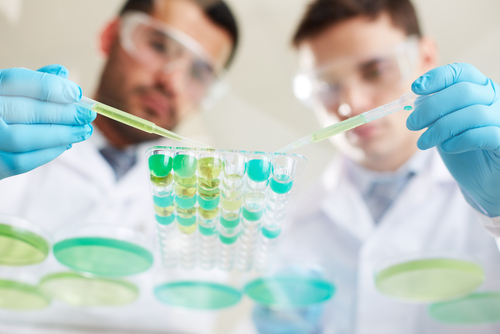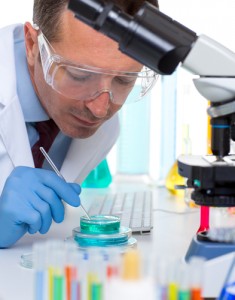Researchers Advance New Stem Cell Methods for Remyelination in MS Patients
Written by |

 In-vitro laboratory experiments using stem cells have long-since been the subject of debate between scientists and naturalists, but when it comes to developing effective methods to grow human cells and tissue for use in a potentially life-saving procedure or restoration of bodily function, researchers are increasingly more confident that there is more room for hope than there is for argument.
In-vitro laboratory experiments using stem cells have long-since been the subject of debate between scientists and naturalists, but when it comes to developing effective methods to grow human cells and tissue for use in a potentially life-saving procedure or restoration of bodily function, researchers are increasingly more confident that there is more room for hope than there is for argument.
Late last month, the New York Stem Cell Foundation (NYSCF) Research Institute published the outcome of their most recent attempt at viable cell replacement therapy involving autologous (self) samples from patients with primary multiple sclerosis.
The experiment was successful in creating induced pluripotent stem (iPS) cells lines. These were further stimulated to become oligodendrocytes — cells that produce myelin, the very substance that is attacked in MS cases. While there are other preexisting methods to create oligodendrocytes from obtained cell samples, this is the first to cut the half-year production time down by almost 50%, thereby aiding research.
Through these cell line experiments, scientists acquire better insight on the disease progression of MS from the very beginning, ideally before the disease manifests symptoms.
Susan L. Solomon, NYSCF’s Chief Executive Officer, said that research and development in the field of medicine has been making big steps towards finding a cure and better management for this neurodegenerative condition. According to the foundation’s Dr. Valentina Fossati, who is also one of the study’s authors, this successful protocol will no doubt prove essential to future investigations on MS and other diseases, as well as bolster efforts to develop remyelinating agents.
[adrotate group=”4″]
When talking about stem cells, it’s important to differentiate those used in culturing healthy tissue from those that give rise to cancer cells. Researchers from UT MD Anderson Cancer Center and the University of California are looking at cancer stem cells’ ability to develop resistance to pharmaceutical treatments for cancer.


